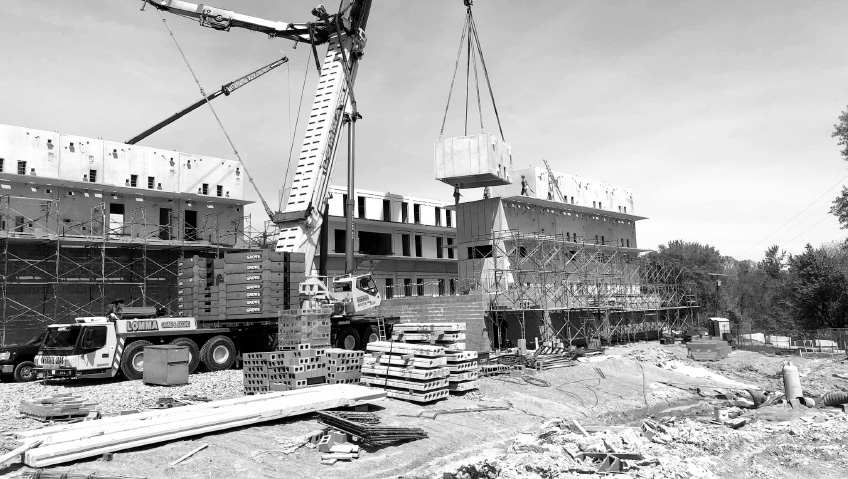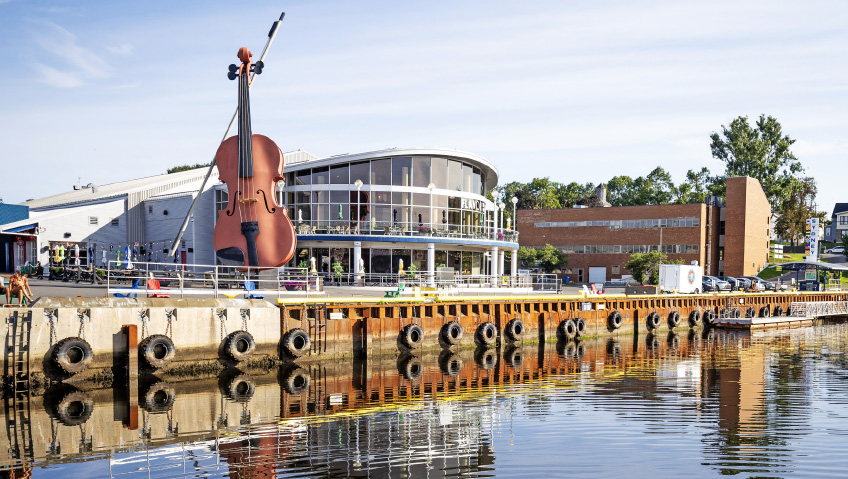Before founding Cornerstone Detention Products Inc. in 1998, Charles ‘Mitch’ Claborn had already dedicated years of his life to honing his experience in the corrections industry.
With the launch of his company, Claborn built an experienced executive team, steadily expanded product lines and services, and learned to recognize and seize every opportunity to benefit customers and company. So successfully has Claborn done this that Cornerstone is now the leading provider of detention products in the world. And with its recent acquisition of RW Modular, the company has shown the way for corrections construction.
In just 25 years, Cornerstone has grown through strategic acquisitions of respected businesses specializing in corrections-related products and services, including mattress manufacturers, security specialists, and windows and electronics specialists. Bringing on these types of companies and others has made Cornerstone a single source for anyone requiring corrections products, construction, and other services.
A natural fit for modular
Around the world, detention facilities are aging out. Some are so old that they are beyond repair, and need to be replaced for the benefit of inmates and staff alike. As times change and construction methods evolve, a different type of building is required.
Recognizing an urgent need for better, smarter, and faster methods of building led to Cornerstone’s acquisition in 2022 of RW Modular, LLC. A well-known provider of monolithically-poured concrete modular products for domestic and international markets, RW’s pre-finished, precast cells have been used for correctional, residential, hospitality, and military applications.
Claborn feels that bringing on board RW’s owner and President Steve Weirich together with his entire team has strengthened Cornerstone’s position as a one-stop solutions provider for the corrections industry.
“We welcome Steve and the employees of RW Modular to Cornerstone and are excited for the additional array of knowledge and services they bring to our team,” he says. “Steve’s experience and leadership will allow us to continue to serve the correctional industry and bring quality to all of our projects.”
Before the acquisition of RW, Cornerstone did not have a modular division. When RW came on board, an entirely new business unit was created. As a company with other entities, some items used by the new modular unit in the manufacturing process, outfitting, and finishing come from other businesses under the Cornerstone umbrella.
With the companies having worked together on many projects over the years, the merger of these two brands takes Cornerstone to another level, adding extra value for customers. For Steve Weirich, becoming an integral part of Cornerstone is a perfect fit. Creating RW Modular in 1994, Steve and his team are well-versed in the many advantages of modular construction over traditional building methods, starting with how products are made.
Monolithically-poured concrete modules are strong, long-lasting, fire-resistant, non-combustible, and well-suited for areas prone to challenging weather and even seismic activity. The modules are sustainable since they reduce the consumption of raw materials compared to conventional construction. And with the world’s construction industry facing a shortage of tradespeople, these modular units can be manufactured and set in place quickly.
On-site advantage
Indeed, a key aspect of RW Modular’s business model that appealed to Cornerstone was its ability to set up temporary manufacturing facilities at or near project sites. There is no standard “factory,” or standard product, despite some similarities from one project to the next.
Detention facilities, for example, do not have standard cells. Cranes and molds are created on-site instead of in a fixed factory. The upside, from a costing standpoint, is lower shipping costs. “The savings to set up on or near the project site—especially when there is reasonable size or scale to the project—can be significant,” says Weirich, Executive Vice President of Cornerstone Modular Solutions. “It can be a seven-figure saving in cost.”
For clients and communities alike, there are many benefits to modular. Producing cells on-site instead of in a factory two or three states away means hiring more local people and using area companies. “That’s a major selling point, especially when you’ve got these projects using tax dollars.”
Modern and secure
“There is a real desire to provide more modern, secure, and safer facilities,” says Weirich. “It’s like renovating your house after so many years; there are facilities anywhere from 50 to 100 years old that don’t have the safest, most secure, or most humane conditions. So there’s a fair amount of correctional work going on now to bring things up to more modern standards. And this is being done for the safety and security of the inmates and people working in the facility—not just the correctional officers, but also medical staff and social services workers.”
Another factor in the growth of modular construction includes changes in the approach of correctional facilities themselves. According to recent figures, an estimated 1.9 million men and women are incarcerated in American state prisons, local jails, federal prisons and jails, territorial prisons, immigration detention centers, and other facilities.
Years ago, typical cells were small. Measuring about 80 square feet, they held two inmates. While this type of construction still exists, Weirich is seeing more humane building, with larger cells and health care rooms. The new facilities are still secure, but more are designed with designated areas for proper physical and mental health treatment.
“We’re seeing a lot more diversity in the types of products we make to accommodate what has truly become a recognizable need,” says Weirich. “As a society, this gives us a much better chance at rehabilitation. So that’s been a fundamental improvement in the market.”
Building on trust
He explains that there are three categories of clients for the company. The first includes general contractors who write the contracts, with Cornerstone serving as a primary specialty contractor under a large GC.
Then there are designers—particularly architectural firms—who have a lot of influence on the type of building systems and methodology of construction being utilized. These designers engage with the company in advance to evaluate which products and systems fit their needs.
Third, there is the end user. In corrections, this may mean the Department of Corrections for various states, the federal government, immigration, customs enforcement, or private companies.
“All those entities fit the client base,” says Weirich. “Our client base has a lot of respect and trust that’s been established by Cornerstone over the last 25 years. And when you have clients who have confidence and trust in you, you can say to them, ‘We can provide you A and B on a project, but we can also take care of C, and you can come to us for A, B, and C, and count on us taking the project from initial design all the way through to commissioning and owner occupancy.’ And that is something the market has been very receptive to.”
The addition of a modular unit has also diversified Cornerstone geographically, including select locations outside the United States. Although the company’s focus has been primarily on the corrections industry in America, Weirich says Cornerstone is looking at broadening the market in other countries, with monolithically-cast concrete structures for multifamily and single-family residential housing.
Some things to celebrate
Recently, Cornerstone won a contract for a new detention center in Jackson County, Missouri. With an estimated cost of $300 million, the Jackson County Detention Center will comprise 450,000 square feet, with 1,000 beds. This project will benefit the local community through jobs.
“There was a significant requirement in the bid proposal package to run employee outreach and local business community outreach, and we overwhelmingly satisfied and exceeded the requirements of both of those areas for the project,” says Weirich. “That’s a real advantage for the system that we utilize.”
With Cornerstone’s 25th anniversary coming up this year, Mitch Claborn remains at the helm of the company and a respected figure in the corrections sector.
“Part of the reason for me to sell my company was the opportunity to partner with Mitch,” says Weirich. “He’s a great leader and businessman, and really has a vision for the company, including vertical integration, which has led to significant investment on the manufacturing side.”






